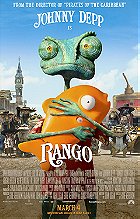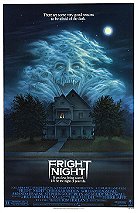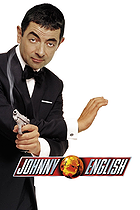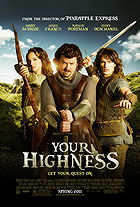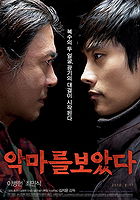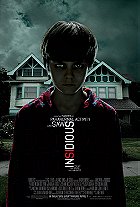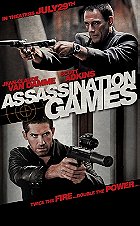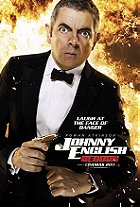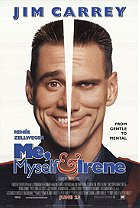Bridesmaids is another R-rated summer comedy from the Judd Apatow humour factory. However, this is not your typical Apatow outing populated by males and sex jokes - instead, Bridesmaids is mostly concerned with females. Do not, however, mistake this for another superficial, harebrained chick flick like Bride Wars or Sex and the City, nor is it simply a female version of The Hangover. Bridesmaids is its own movie with its own identity - it's a poignant comedy-drama exploring tumultuous female relationships and the disenchantment of middle age. The film tells a heartfelt tale which feels real and focuses on a handful of well-developed, three-dimensional female characters. And it's also genuinely hilarious. In this sense, Bridesmaids is the antithesis of the onslaught of amazingly stupid chick flicks featuring the likes of Katherine Heigl and Kate Hudson.

Annie (Wiig) is in her 30s, stuck in a nowhere relationship with a prick (Hamm), and has worked a lowly job at a jewellery store ever since her beloved bakery went out of business. When her lifelong best friend Lillian (Rudolph) announces her engagement and impending marriage, Annie is given the maid of honour responsibilities, much to her excitement. However, as she begins organising events leading up to the big day, Annie finds herself threatened by the sophisticated, rich Helen (Byrne), who begins assuming control of everything and trespassing on Annie's turf as Lillian's best friend.
Bridesmaids is an unapologetically R-rated comedy (unsurprising for a Judd Apatow production), but not in the sense that it's packed with excessive language or gross-out gags which push the boundaries of bad taste. Instead, writers Kristen Wiig and Annie Mumolo used the freedom of the R rating to pen an uncompromising, honest script which treats the story and characters with the realism and care that they demand. A lot of mainstream comedies reduce female characters to materialistic shopaholics or quirky supporting characters, but Bridesmaids explores the deeper facets of real-world females. In the real world, women don't merely cry a lot and shop compulsively - the gender has its own voice and humorous sensibility, and the film brings this out. One of the biggest successes of the script is how well-written the characters are, from the flawed and troubled Annie to the hilariously eccentric Megan. Helen could have easily been written as materialistic and shallow, but the role has genuine depth which is gradually revealed as the film progresses.

Director Paul Feig's last feature film was 2006's Unaccompanied Minors, after which he worked a lot in TV (including the American version of The Office). Despite being Feig's first feature in five years, Bridesmaids is a skilfully-made picture, and it's clear that Feig has a firm grasp of comic timing. Additionally, the film for the most part flows at an agreeable, brisk pace. However, like other Apatow pictures, Bridesmaids runs over two hours, which is about 15-20 minutes too long. A comedy like this requires more focus and tighter editing, but instead the film meanders here and there. It doesn't drag too much, but as a whole the picture feels too long in the tooth, especially since the laughs become too scattershot in the final half-hour.
Let's not mince words here - the underrated Kristen Wiig is brilliant as Annie; she's appealing, relatable, hilariously unrestrained and at times genuinely touching. Wiig has bounced around the sidelines of comedies for years and has always shined (see Whip It, MacGruber and Paul, just to name a few), so it's fantastic to see her finally getting the lead role in her own film. Bridesmaids may contain a sizable ensemble of excellent female performers, but this is Wiig's film. Speaking of her co-stars, Wiig's interactions with Rose Byrne are often hilarious, and the two play off one another perfectly. Maya Rudolph (Wiig's co-star in 2010's MacGruber) is friends with Wiig in real life, and their genuine friendship has translated to a terrific on-screen chemistry. Another standout in the cast is the hilarious Melissa McCarthy as Megan, who has an air of Gary Busey about her (i.e. she doesn't seem to be all there in the head). Like Wiig, McCarthy has the capacity to handle both drama and humour extremely well. Then there's Irishman Chris O'Dowd as the charming, kind-hearted Office Rhodes. O'Dowd is a delight in the role, and male viewers will likely find him the easiest to relate to (this reviewer did).

It's virtually impossible for Bridesmaids not to win you over. The film is destined to be a comedy classic, as it's a crowd-pleasing, entertaining, hilarious and heartfelt comedy which isn't in bad taste and doesn't succumb to empty-headed stereotypes. Male or female, you can relate to Bridesmaids in some capacity.
7.8/10
 Login
Login
 Home
Home 183 Lists
183 Lists 1667 Reviews
1667 Reviews Collections
Collections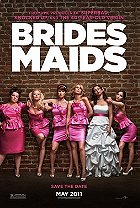
 0 comments,
0 comments, 